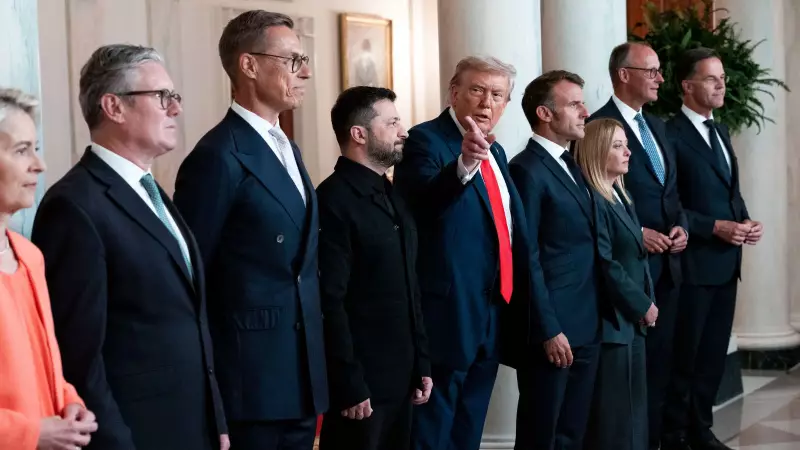
European capitals are experiencing growing alarm and diplomatic turmoil following revelations about a United States-backed peace initiative for Ukraine that appears to heavily favor Russian interests. According to multiple diplomatic sources, the proposed framework would essentially lock in Moscow's territorial gains while offering Ukraine limited security guarantees.
Diplomatic Shockwaves Across Europe
The controversial peace proposal, reportedly being developed by the Biden administration, has sent shockwaves through European diplomatic circles. Key European allies were caught off-guard by the plan's contents, which emerged just days before the crucial NATO summit in Washington. The timing has particularly strained transatlantic relations, with several European diplomats expressing frustration at not being adequately consulted.
Multiple European officials confirmed that the proposed framework would require Ukraine to accept neutral status, meaning it could not join NATO. More controversially, the plan would allow Russia to maintain control over approximately 18% of Ukrainian territory that it currently occupies, including Crimea and significant portions of Donbas. This represents a substantial concession to Moscow's expansionist goals.
The Proposed Framework and Its Implications
According to diplomatic sources familiar with the discussions, the US plan involves a ceasefire based on current battle lines, followed by extended negotiations about the final status of contested territories. The proposal suggests that Ukraine would receive security guarantees from Western nations rather than NATO membership, while Russia would face gradual sanctions relief if it participates in good faith.
The plan has generated particularly strong reactions from Eastern European nations that border Russia. Officials from Poland and the Baltic states have privately expressed concerns that accepting Russian territorial gains could set a dangerous precedent for future aggression in the region. One senior European diplomat described the mood as "deeply troubled" by what appears to be a significant shift in American strategy.
European Response and Alternative Approaches
European leaders are now scrambling to coordinate their response ahead of the NATO summit. Several countries, including the United Kingdom and France, are advocating for alternative approaches that would provide Ukraine with stronger leverage in negotiations. There are discussions about increasing military assistance to Ukraine to improve its bargaining position before any ceasefire talks begin.
The emerging divide reflects broader tensions within the Western alliance about how to balance support for Ukraine with growing war fatigue. While European nations acknowledge the devastating human and economic costs of prolonged conflict, many worry that a peace deal that rewards Russian aggression could undermine European security for generations.
As preparations continue for the NATO summit, diplomatic activity has intensified with emergency meetings occurring in Brussels, Berlin, and Paris. The outcome of these discussions could significantly influence the Western approach to the conflict and determine whether a unified position can be achieved.





